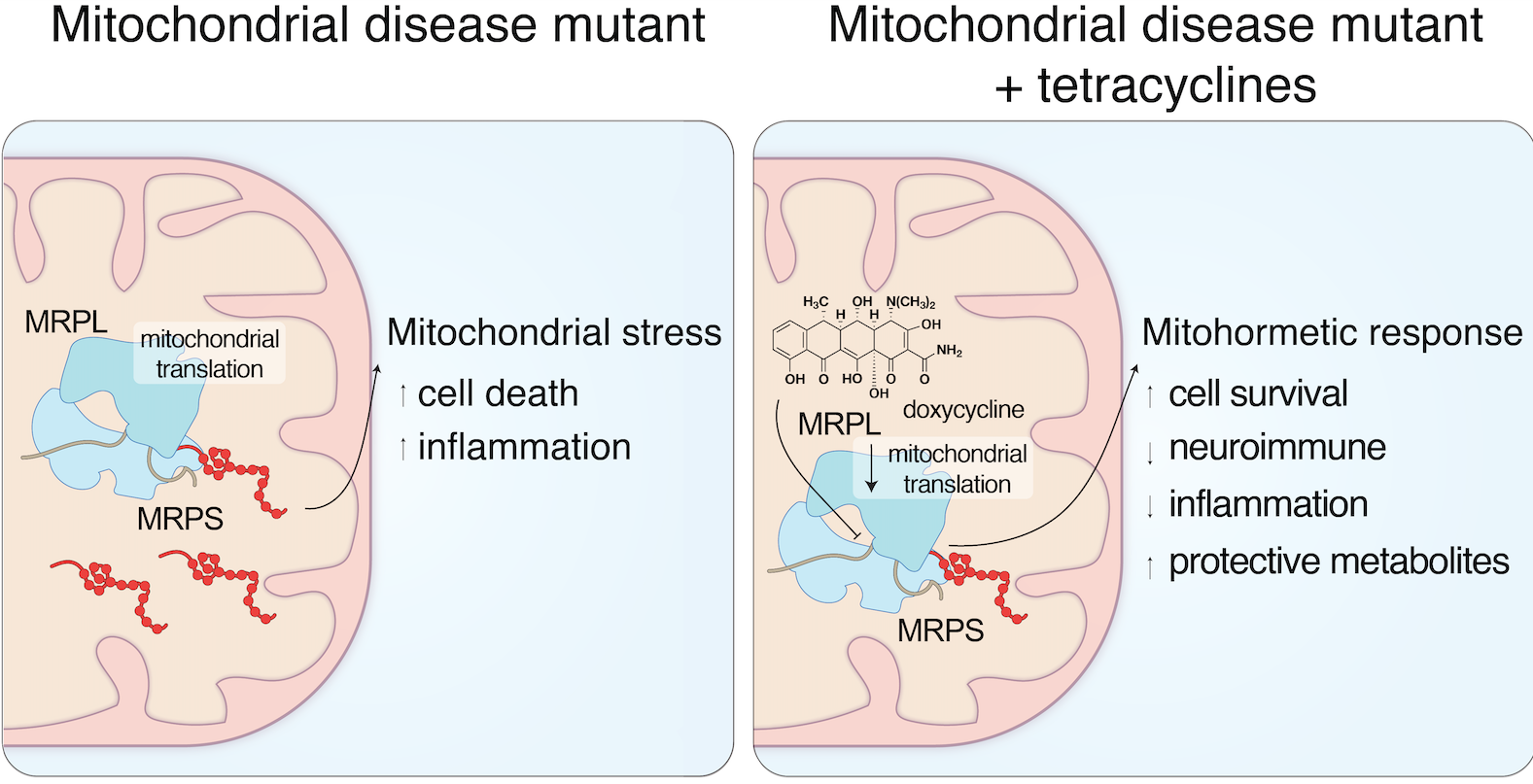
Mitoribosome translation synthesizes proteins that are inserted into the inner mitochondrial membrane and assembled into functional respiratory complexes. Mitochondrial disease mutations interfere with this process and produce severe cellular damage and associated pathologies. However, the mechanisms underlying this cellular deterioration and how it can be repaired are largely unknown. In a new study published in Nature Metabolism, the Puigserver Lab uses a novel chemical screening platform to identify a series of antibiotics that rescue cell death and inflammation caused by human mitochondrial disease mutations. The mechanisms depend on partial mitoribosome translation inhibition. Tetracyclines increased survival, and reduce the aberrant pathology in a mouse model of Leigh Syndrome.